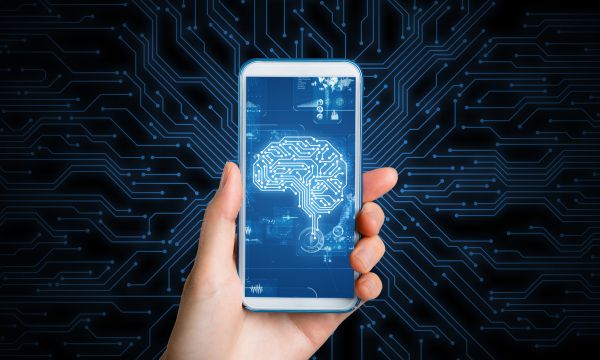6 AI Health Apps That Will Make Your Life Easier in 2025!
In the rapidly changing world of 2025, artificial intelligence (AI) continues to transform healthcare and take important steps toward improving people’s lives.
Ad
Artificial intelligence health apps are one of the most important new technologies as they aim to make healthcare more efficient, provide more personalized care, and make it easier than ever for users.
These six AI health apps will change the game by 2025 and make our lives easier and better.
1. Apps that help with personal health
By 2025, personal health assistant apps that use artificial intelligence will get smarter and do more, such as analyzing symptoms and reminding users to take medications.
These apps use artificial intelligence algorithms to provide users with the right health information, track their medical history, and even show them how to administer first aid.
These assistants can use natural language processing to understand and answer user questions in real-time. They can also provide users with personalized recommendations based on their health data.
2. Apps that promote mental health and well-being
With the rise of AI-powered wellness apps, mental health is finally getting the attention it needs. These apps offer personalized therapy sessions, mindfulness exercises, and stress management tools based on the user’s mood and tastes. Using artificial intelligence, these apps can observe how people talk and interact with each other to detect signs of mental health problems.
If they do, they can provide immediate support and advise the user to seek professional help. They offer people a personal and convenient way to take care of their mental health, which is good for their overall well-being.
3. Diet and nutrition apps
AI-powered health apps focused on food and nutrition are changing the way we think about food and health. These apps can create personalized meal plans, provide nutritional recommendations, and even suggest recipes that meet specific health goals by looking at what users enter and what they like to eat.
Advanced features include tracking the nutrients you eat, managing nutritional conditions like diabetes, and connecting fitness trackers for a complete view of your health and fitness.
4. Exercise and fitness apps
With AI-powered fitness apps, you can get more personalized and effective workout plans than ever before. These tools help create a workout plan that’s right for you, based on your fitness level, goals, and personal tastes.
They ensure that you train effectively by giving you real-time feedback and making changes based on your performance. Some apps even use computer vision to look at your form and tell you how you can improve it. It’s like having a personal teacher in your pocket.
5. Apps to help you fall asleep
Sleep is so important to health that AI-powered health apps that help you sleep better are quickly becoming critical. These apps use soundscapes and meditation routines and track your sleep to understand how you sleep and give you tips on how to sleep better.
AI algorithms can figure out what’s keeping people awake and offer changes to help them sleep better so they feel refreshed and ready to go when they wake up.
6. Apps for managing chronic diseases
Artificial intelligence health apps are changing the game for people with long-term illnesses. These apps allow you to monitor your symptoms, make sure you’re taking your medications as prescribed, and get personalized feedback to help you manage conditions like asthma, diabetes, and heart disease.
They also make it easier to talk to healthcare providers remotely, so patients get the right help and care at the right time. These apps are important for improving the quality of life for people with chronic conditions, as they provide ongoing assistance and monitoring.

AI Health Apps (Source- Google)
Conclusion
As 2025 dawns, AI health apps are no longer just something to have. They are necessary. They change the way we think about health and fitness. They make it easier for people to take control of their health by providing personalized, accessibl,e and effective answers to a variety of health questions.
As technology continues to develop, these applications are likely to become even more important in our daily lives, providing us with information and assistance that we could not have imagined before. The future of healthcare is already here and is being personalized for each individual using artificial intelligence.
FAQs
1. How can AI health apps make it easier for you to take care of your health?
AI health apps help people take better care of their health by providing them with personalized information, recommendation,s and updates based on their health records.
They use artificial intelligence to find patterns, guess what health problems might aris,e and give users personalized tips to help them maintain or improve their health.
This includes everything from help with diet and exercise to remembering to take medications and tracking symptoms.
2. Can AI health apps help doctors figure out people’s problems?
AI health apps can give users preliminary diagnoses or alerts based on their symptoms and health data, but they are not intended to replace a doctor’s analysis.
Still, they can help with early detection by encouraging people to consult a doctor and have a more thorough examination and diagnosis by a medical professional.
3. Are health apps that use AI safe and private?
Reputable AI health apps prioritize user privacy and data security. To protect personal health information, they use strong encryption methods and follow strict privacy rules.
People who use apps should look for apps that clarify how they handle data and privacy and how they comply with health data security laws (such as HIPAA in the US or GDPR in the EU).
4. How do these apps make health advice more relevant to you?
AI health apps make recommendations based on a person’s medical background, lifestyle choices, and real-time health data from wearable devices or manual input.
They do this by using machine learning algorithms to look at this data. These apps can provide each user with advice and assistance tailored to their needs and goal, because they understand the health status of each person.
5. Can health apps that use AI be used with other health technologies?
Yes, many AI health apps work well with other healthtechnologiesy, such as smart scales, wearable fitness trackers, and medical devices.
This connection enables automatic synchronization of data, giving users a better understanding of their health status and allowing doctors to make more accurate and comprehensive health recommendations.
6. Does the AI health application require a monthly fee?
There are several ways to make money with AI health apps. Some may offer basic features for free and pay for paid services, while others may require a subscription to access all features.
Users should review the pricing models and choose a service that suits their needs and the money they have.
7. How realistic are the health tips that AI health apps give you?
The health insights provided by AI health apps may not always be accurate. This depends on the quality of the algorithm, the amount of health data analyze,d and the main goals of the application.
While these apps can provide users with useful health information and advice, they should always consult a doctor before making any medical choices.
 Emotional Health and AI: New Tools for Self-Care
Emotional Health and AI: New Tools for Self-Care
Emotional health and AI are increasingly connected, opening up new possibilities in emotional care. Ad In recent […]
More AI in Elderly Care: Technology Meets Compassion
AI in Elderly Care: Technology Meets Compassion
Integrating artificial intelligence (AI) with elder care is not only a sign of technological progress but also […]
More 5 AI Health Startups That Are Changing the Game in 2025!
5 AI Health Startups That Are Changing the Game in 2025!
Artificial Intelligence (AI) is a shining example of the rapid changes in healthcare. It brings major changes […]
More